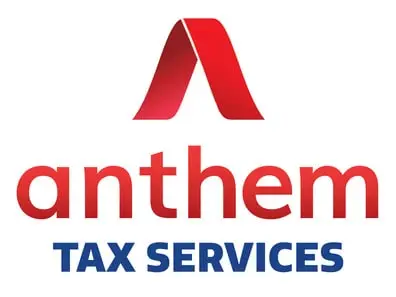
Of all the pieces of mail you don’t want to receive, one of the most daunting ones to have landed in your mailbox is a CP14 Notice from the IRS. If you’re wondering what one is and why it’s such an aggravation, let us explain: A CP14 is a notice of balance due, indicating that you have not paid your taxes in full. It will set out how much is due to be paid, including any penalties and interest, and give you a date by which to settle.
Justifiably, you may well feel intimidated by such a demand, mainly if you were under the impression that you had, in fact, paid everything due when you initially paid. It is vital that you know, then, that you are entitled to challenge a CP14 should you feel that it has been sent in error or the amount is too high. It is essential that you arm yourself with all of the information you can, should you wish to make this challenge.
What you need to do right now
On receiving a CP14 notice, your first action must be to read it thoroughly and absorb all the information it contains. Consider whether anything on the notice does not ring true to you. Then you should compare the notice side by side with your copy of the tax return you filed. Is there any place in which they disagree? If so, can you show that you are correct? If you made a mistake, can you file an amended tax return? Also, have you paid, and the letter is saying you have not? In that case, you should do all that you can to prove that a payment has already been made.
What if you do owe money?
It may be the case when you read the notice that you see the IRS had it right and that you do indeed owe the money. If you can pay it in full, then do so via the IRS website and take a payment confirmation screenshot. If you can’t pay your balance in full, don’t panic. There are paths available to you whereby you can arrange to pay it off incrementally, and Anthem Tax Services provides varying IRS payment plan options and tax debt relief services. In situations where you cannot pay back your taxes in full, we can help you form a payment plan that will allow you to pay back your taxes over time and at a monthly rate that is comfortable to you. Ideally, you’d be free of the tax burden quicker, but failing to keep up with an installment agreement may have you facing more penalties and interest, so a smaller amount you can pay works out better in the long run.
What if the IRS has made a mistake?
It happens – they use a computerized system to calculate tax accounts and issue letters, and on some occasions, that system gets it wrong. It is worth scanning the notice for any incorrect information that may have brought about an invalid conclusion. If you find any such information, you then have a case to challenge the findings of the notice. You can contact the tax debt relief specialist at Anthem Tax Services to help you with the challenge; we have full awareness of which steps to take and which levers to pull to ensure that you get the best results possible. You will need to provide evidence of everything you claim – this could include payslips, receipts, emails, check stubs, and anything else you can find which supports your assertion that you should not have to pay this additional tax. If you do not have copies of the necessary documentation, contact the issuer and ask for replica copies. And for anything you are going to send to the IRS, keep another copy for yourself so that you can refer to it if necessary while you are waiting for a reply to your dispute.
Do not ignore a CP14
If a CP14 is issued in your name and you do owe the IRS money, the sooner you can pay or make an arrangement, the better it will be. If you do not owe the money, this must be communicated to the IRS to amend their record. If you need more time to pay or wish to discuss offering a “full and final” lump-sum payment plan or making another arrangement, then you can contact us by phone or email to get the process started. The bottom line here is: if you receive a CP14, do not assume it has been sent in error and leave it behind – the sooner you deal with it, the better.
Of all the pieces of mail you don’t want to receive, one of the most daunting ones to have landed in your mailbox is a CP14 Notice from the IRS. If you’re wondering what one is and why it’s such an aggravation, let us explain: A CP14 is a notice of balance due, indicating that you have not paid your taxes in full. It will set out how much is due to be paid, including any penalties and interest, and give you a date by which to settle.
Justifiably, you may well feel intimidated by such a demand, mainly if you were under the impression that you had, in fact, paid everything due when you initially paid. It is vital that you know, then, that you are entitled to challenge a CP14 should you feel that it has been sent in error or the amount is too high. It is essential that you arm yourself with all of the information you can, should you wish to make this challenge.
What you need to do right now
On receiving a CP14 notice, your first action must be to read it thoroughly and absorb all the information it contains. Consider whether anything on the notice does not ring true to you. Then you should compare the notice side by side with your copy of the tax return you filed. Is there any place in which they disagree? If so, can you show that you are correct? If you made a mistake, can you file an amended tax return? Also, have you paid, and the letter is saying you have not? In that case, you should do all that you can to prove that a payment has already been made.
What if you do owe money?
It may be the case when you read the notice that you see the IRS had it right and that you do indeed owe the money. If you can pay it in full, then do so via the IRS website and take a payment confirmation screenshot. If you can’t pay your balance in full, don’t panic. There are paths available to you whereby you can arrange to pay it off incrementally, and Anthem Tax Services provides varying IRS payment plan options and tax debt relief services. In situations where you cannot pay back your taxes in full, we can help you form a payment plan that will allow you to pay back your taxes over time and at a monthly rate that is comfortable to you. Ideally, you’d be free of the tax burden quicker, but failing to keep up with an installment agreement may have you facing more penalties and interest, so a smaller amount you can pay works out better in the long run.
What if the IRS has made a mistake?
It happens – they use a computerized system to calculate tax accounts and issue letters, and on some occasions, that system gets it wrong. It is worth scanning the notice for any incorrect information that may have brought about an invalid conclusion. If you find any such information, you then have a case to challenge the findings of the notice. You can contact the tax debt relief specialist at Anthem Tax Services to help you with the challenge; we have full awareness of which steps to take and which levers to pull to ensure that you get the best results possible. You will need to provide evidence of everything you claim – this could include payslips, receipts, emails, check stubs, and anything else you can find which supports your assertion that you should not have to pay this additional tax. If you do not have copies of the necessary documentation, contact the issuer and ask for replica copies. And for anything you are going to send to the IRS, keep another copy for yourself so that you can refer to it if necessary while you are waiting for a reply to your dispute.
Do not ignore a CP14
If a CP14 is issued in your name and you do owe the IRS money, the sooner you can pay or make an arrangement, the better it will be. If you do not owe the money, this must be communicated to the IRS to amend their record. If you need more time to pay or wish to discuss offering a “full and final” lump-sum payment plan or making another arrangement, then you can contact us by phone or email to get the process started. The bottom line here is: if you receive a CP14, do not assume it has been sent in error and leave it behind – the sooner you deal with it, the better.


